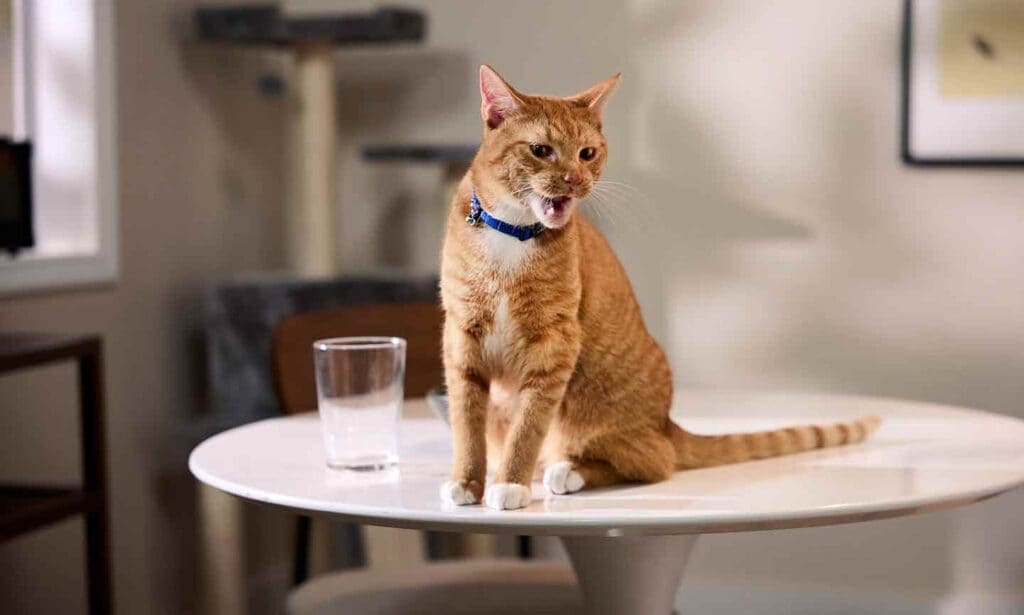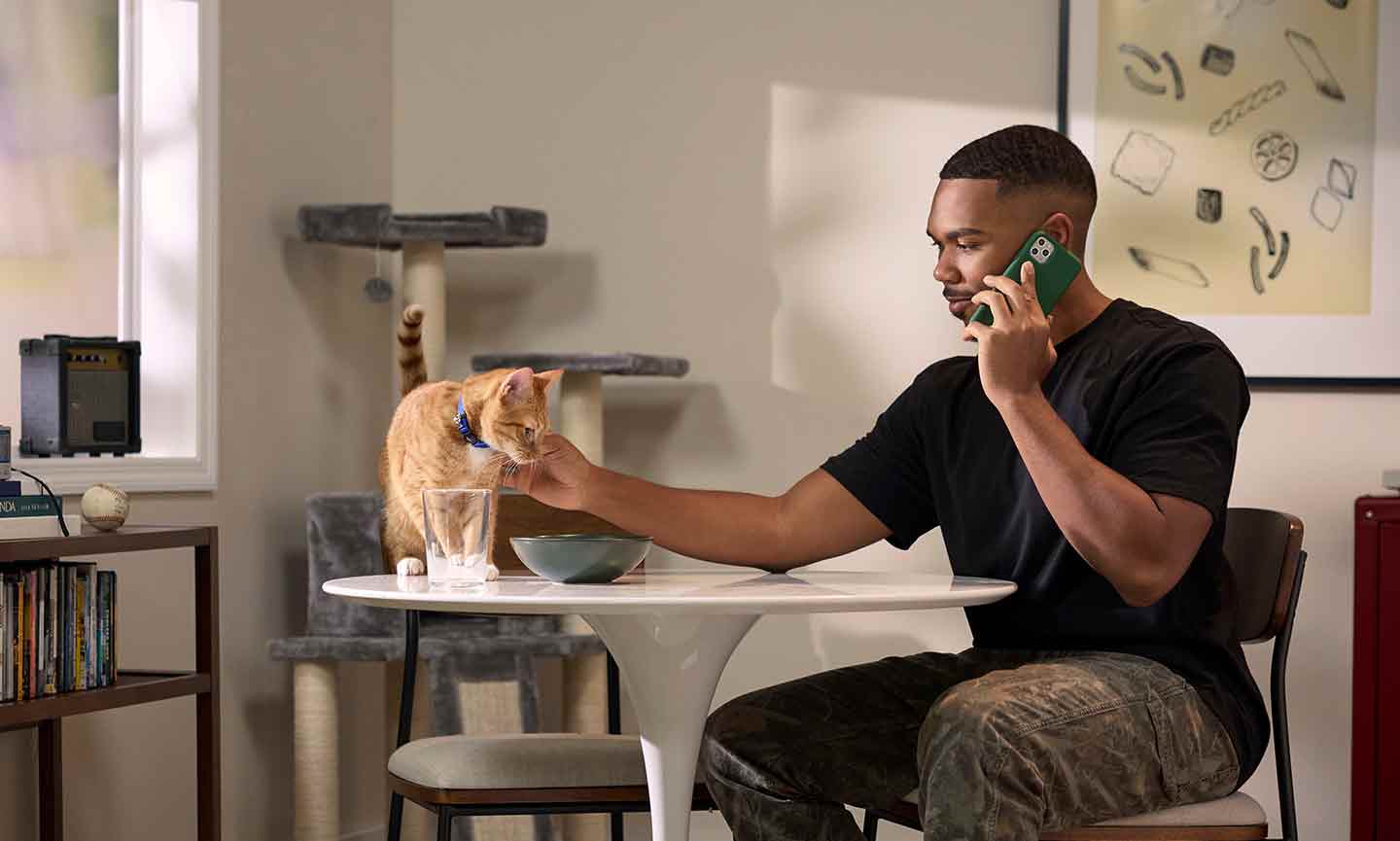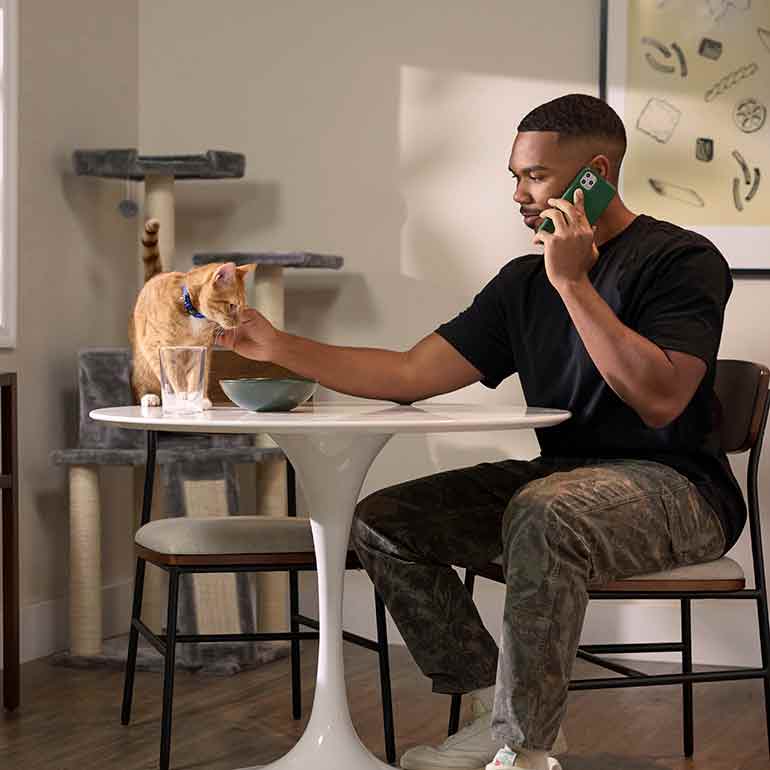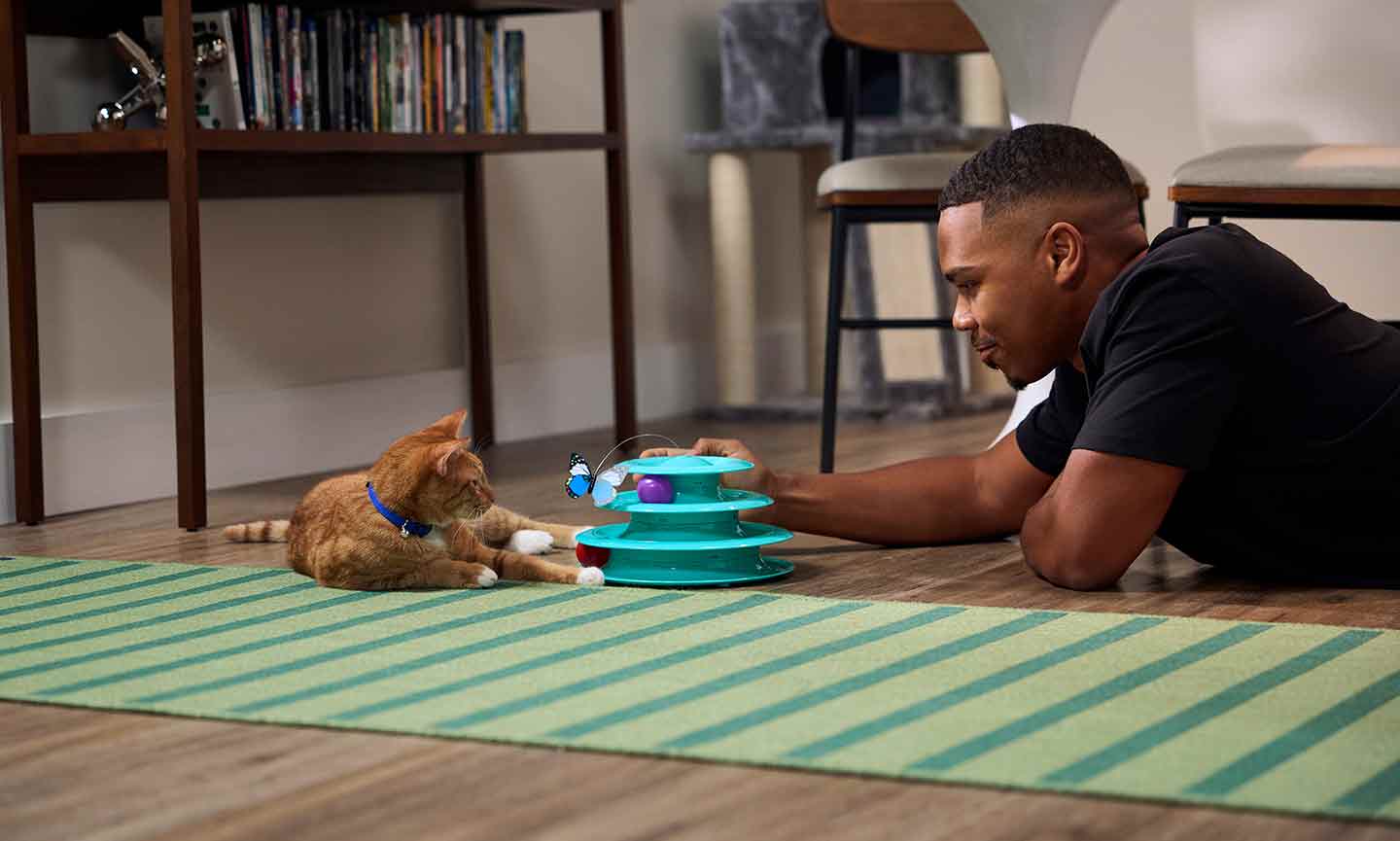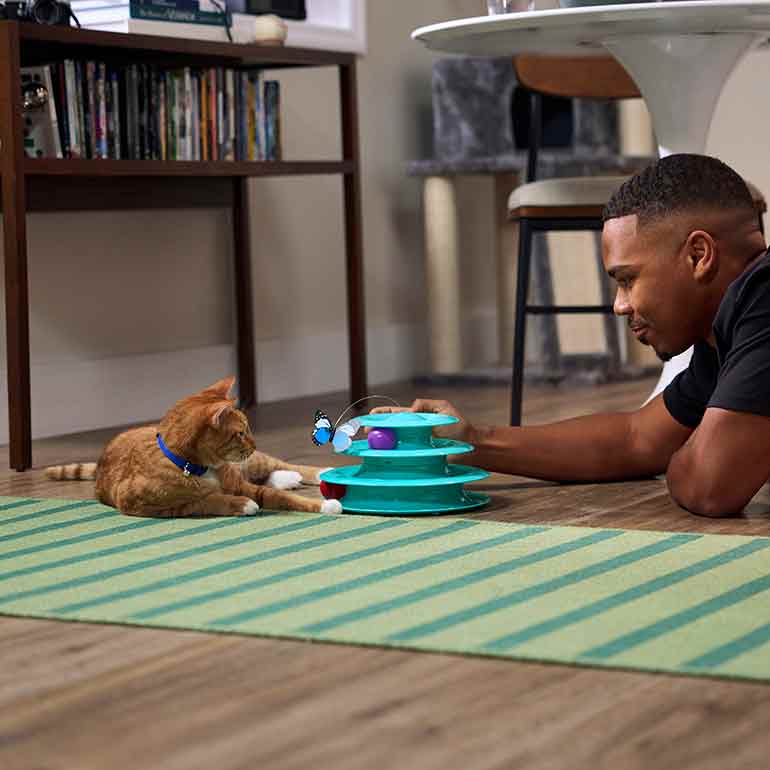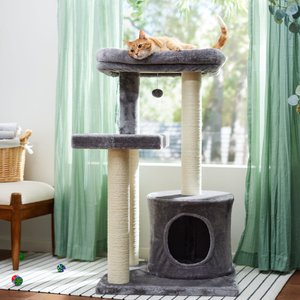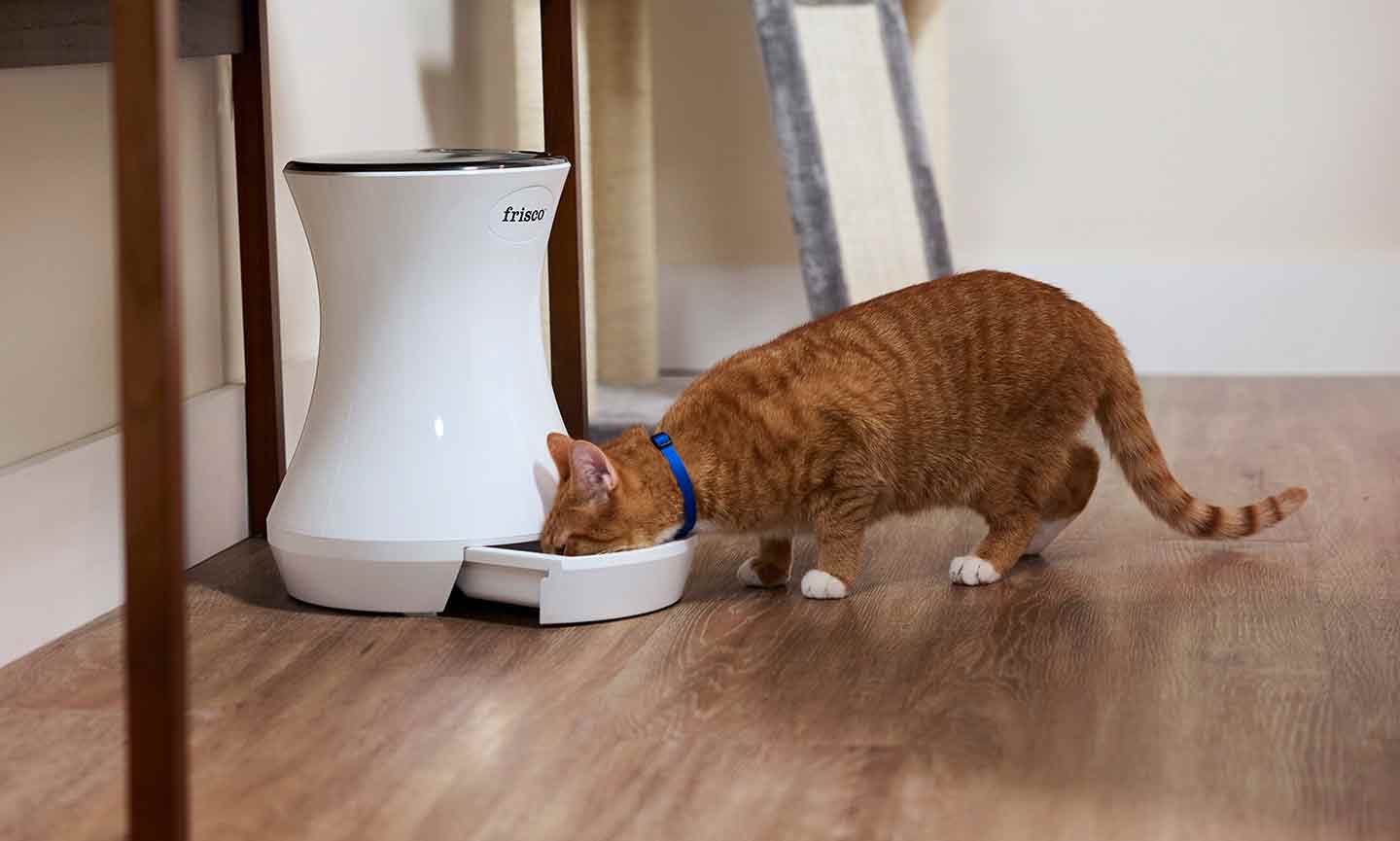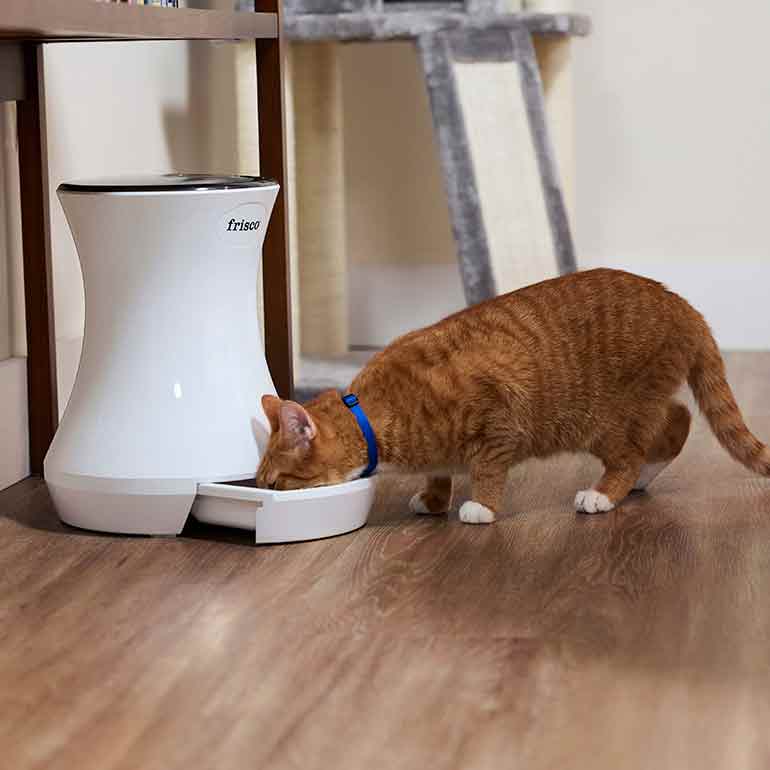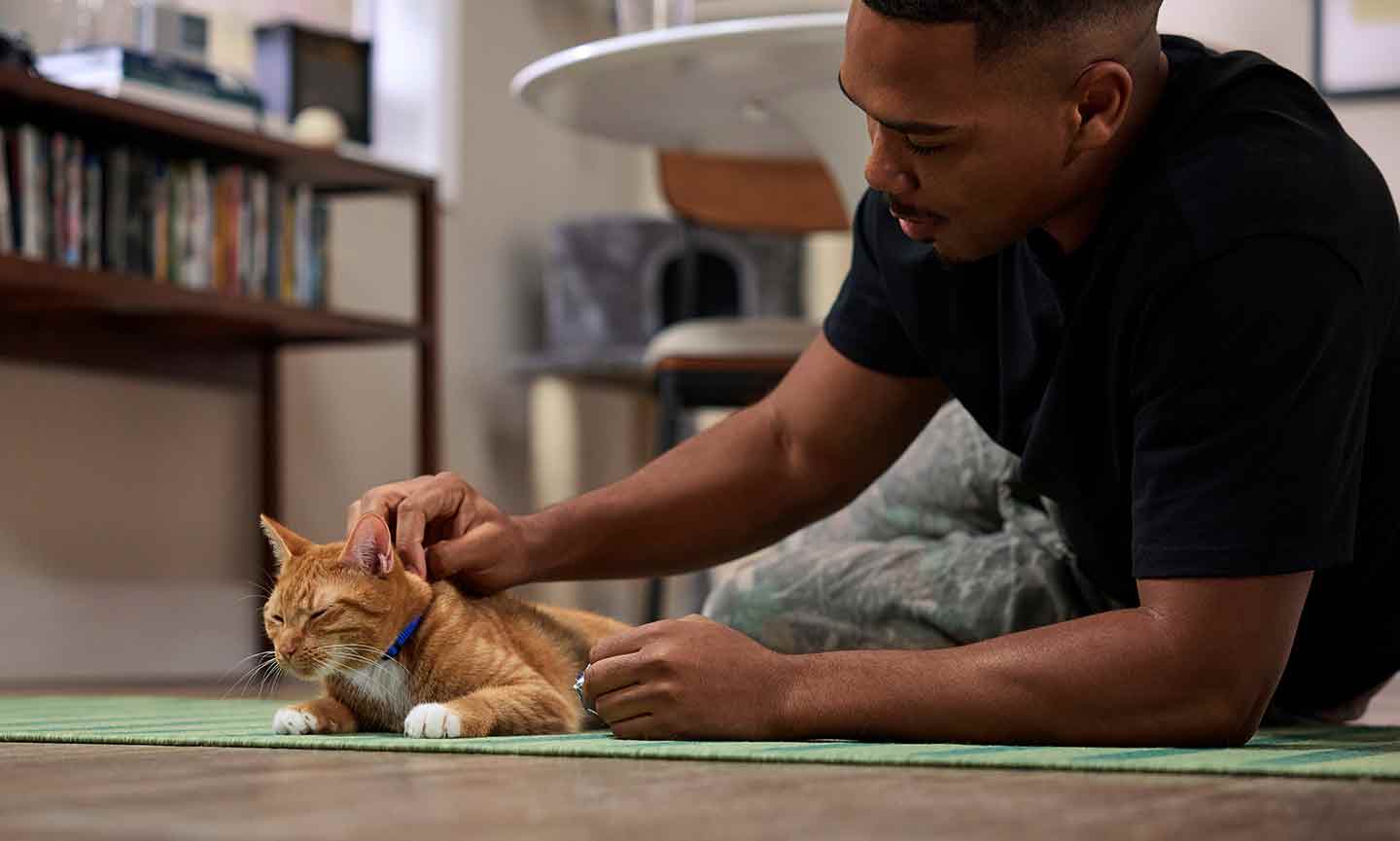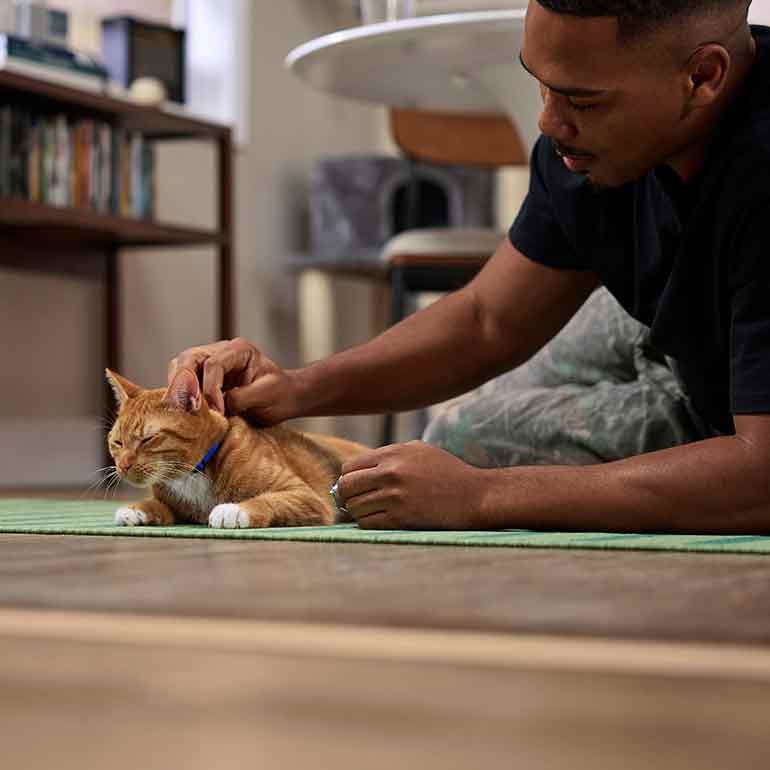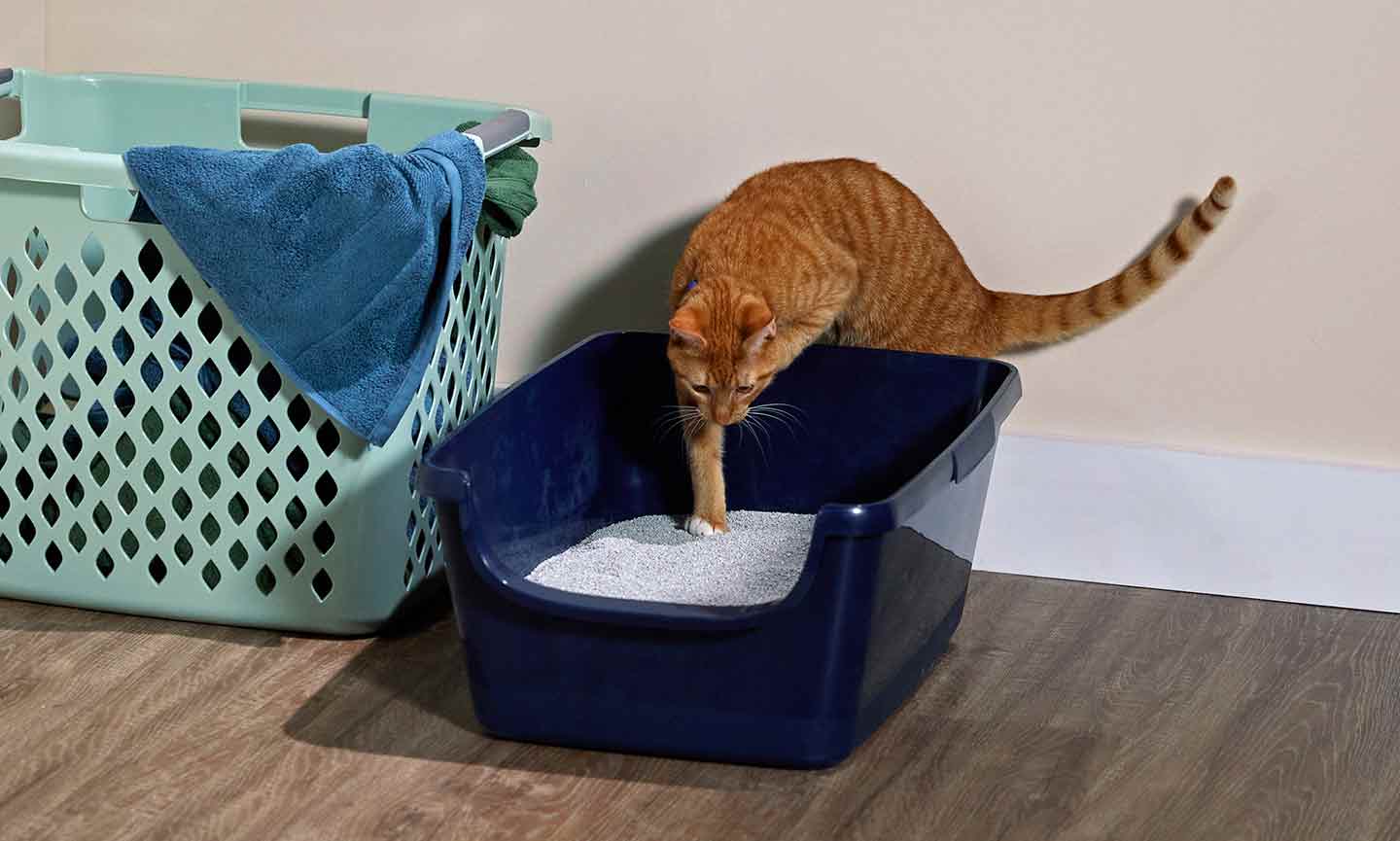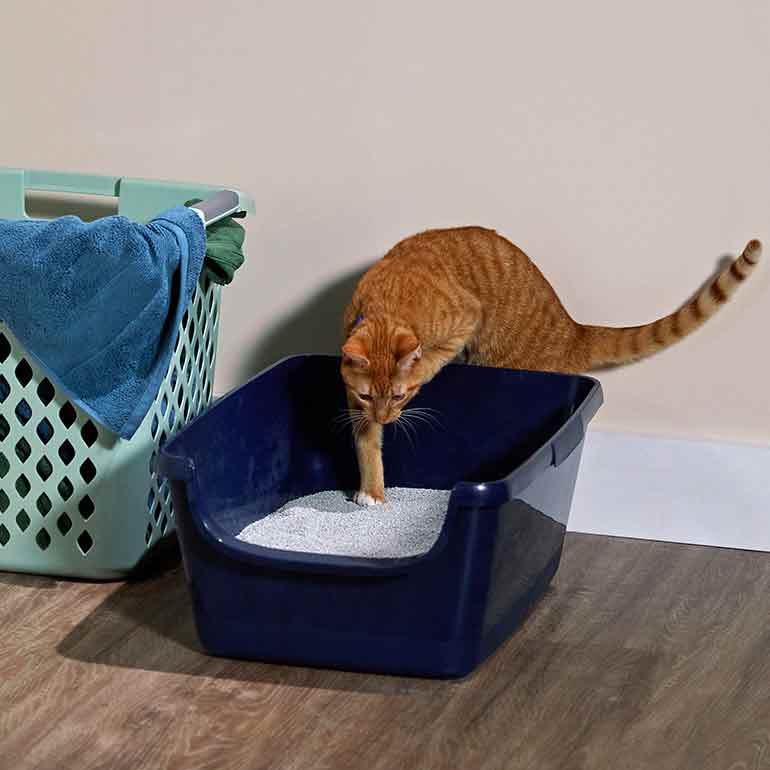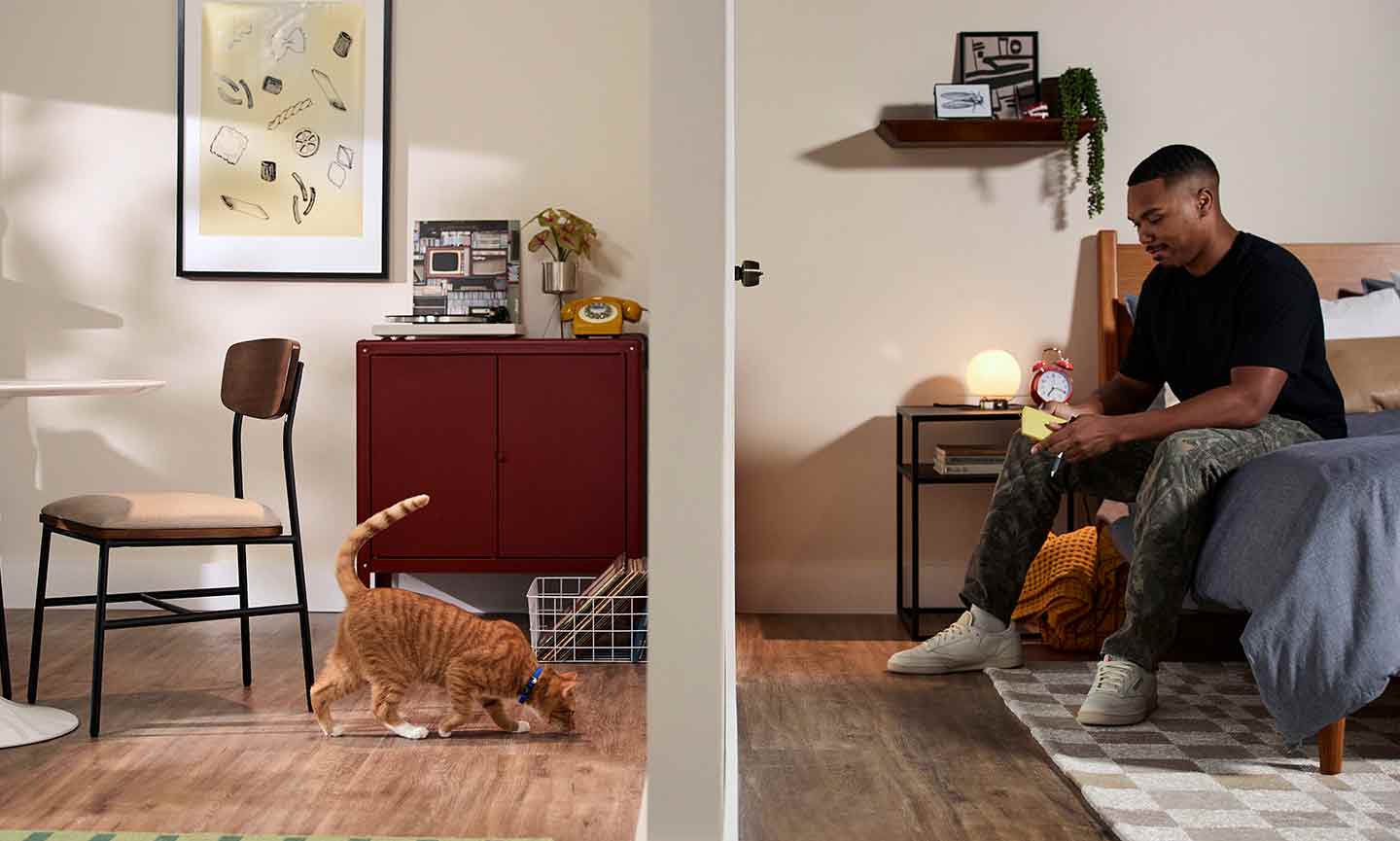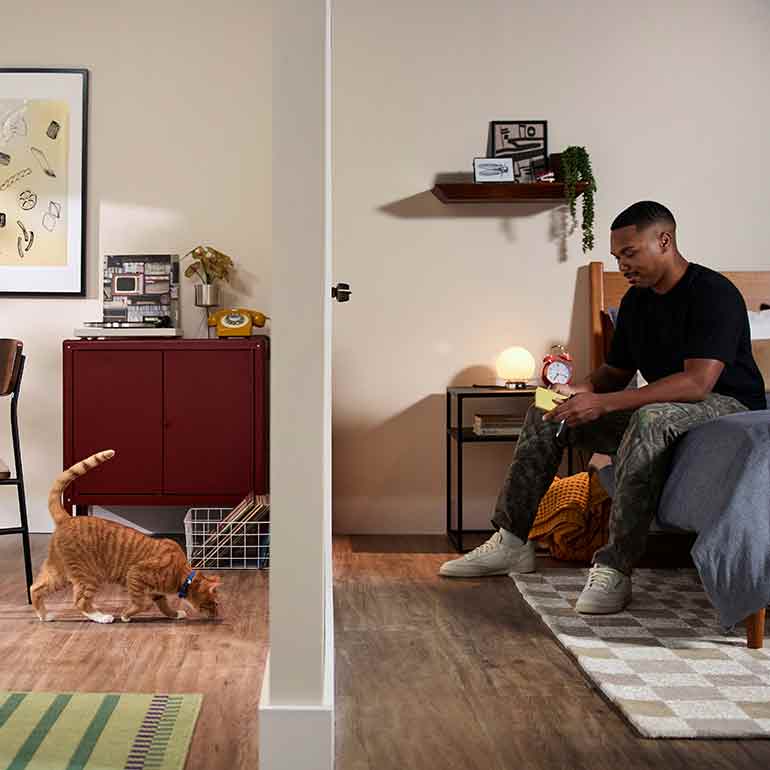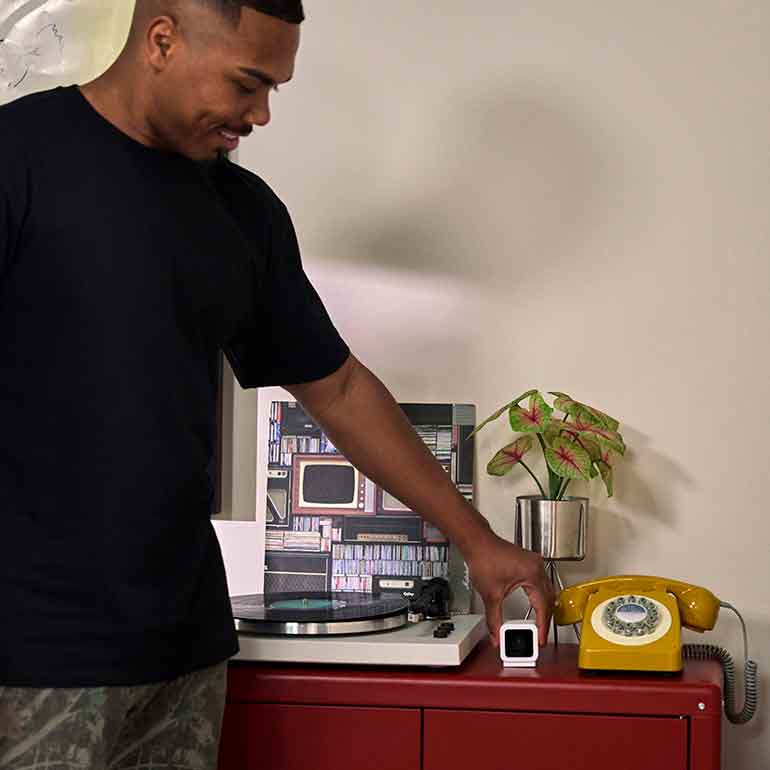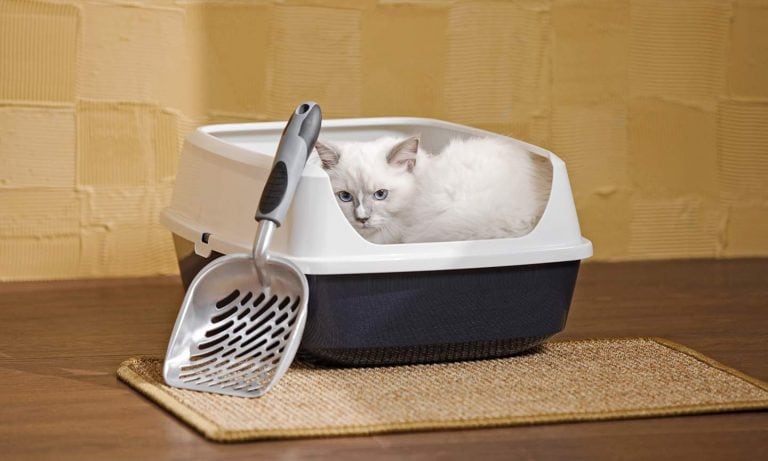Humans talk to communicate with each other. But cats have their own way of chatting with us—they meow. While we may not understand every “mew” and “purr,” cats use vocalization to let us know how they feel. Maybe they’re hungry, playful, stressed, excited or even under the weather. Whatever the reason, a cat’s meow is designed to grab a pet parent’s attention.
Chatting with your cat during the day may be fun and cute. But at night? That’s a whole different story. So, what do you do when your cat’s meowing becomes excessive, just as you’re trying to sleep?
Why Does My Cat Meow at Night?
According to Dr. Ellen Lindell, VMD, DACVB, a veterinarian and veterinary behavior specialist practicing in Asheville, NC, cat yowling at night is a common reason cat parents consult a veterinary behaviorist. These professionals help pet parents determine why their cat might not be acting like themselves—including meowing all night. If you find yourself asking, “Why is my cat meowing so much?” here are some of the possible reasons:
Illness
If your cat has suddenly started meowing at night, you should first check with your veterinarian. If night meows are a new cat behavior or if you have an older cat, the chances are high that a medical condition might be causing your cat to vocalize in the middle of the night.
Aging
Older cats are more at risk for health issues in general. But, as cats age, they can also develop cognitive dysfunction. Your senior cat may get disoriented at night or experience changes in their sleep cycle. As cats get older, they can lose their hearing, too. That means their vocalizations may be louder than before. Elderly cats may be in pain and have difficulty settling down for the night, so they meow to let you know they feel uncomfortable. And, just like people, older cats tend to get cranky with old age. So, if your senior cat’s needs aren’t being met, they are more likely to let you know—sometimes loudly.
Boredom
We tend to think that all cats do is sleep and eat, right? But, if those are truly their only options, your cat will get very bored. Even cats need mental stimulation and excitement. During the day, your cat can watch people move around the house or watch the television. But at night? Things can get really dull, and your cat might just try to tell you so.
Hunger
Though hunger (and thirst) can be a sign of a medical issue, they may also have a behavioral component. Some cats expect things to happen immediately. They may loudly meow to get you to quickly open a can of cat food. During the day, you don’t mind. But at night? That’s a different story. When a cat is hungry and expecting instant gratification, it may show up as excessive meowing!
Social
We think of cats as loners, but they’re actually social animals. Let’s say your cat wants an hour of social interaction per day—that could include playing with catnip toys, belly rubs or cuddles. If your busy schedule doesn’t allow any time to interact with your cat, your furry friend may start to act out.
Litter Box Issues
Your cat might be meowing because they’re trying to get to the litter box and running into problems. An older cat could have trouble stepping into the litter box comfortably. If other pets are loose at night, they might be harassing or trapping your cat. Or maybe you forgot to scoop the poop today. Whatever the reason, your cat has to go and is meowing to let you know!
Lifestyle Changes
Is there something about your behavior that could be bothering your cat? A new baby? A new pet? A new job? Or maybe your cat has always meowed at night, but your new boyfriend can’t sleep through it like you can. A change in your cat’s environment may have upset their routine—and now they’re letting you know all about that upset. Rather than investing in good earplugs, try to get to the bottom of what the meowing is all about.
How To Stop Your Cat From Meowing at Night
1Consult your vet to rule out health issues.
Check with your veterinarian, who will ask you questions to determine if your cat is suffering from a medical or behavioral issue. Older cats can suffer from many illnesses like kidney disease, hyperthyroidism (overactive thyroid) or adrenal gland disease. Vets can also screen for seizures, which can manifest as bouts of yowling.
If your cat is in pain, take them for a check-up. Vets can prescribe medications to make them more comfortable. Or they may suggest that you make ramps up to places your cat wants to be—like your bed. If your cat has cognitive issues or is confused, your vet may recommend medication to slow the process of brain aging. You can also limit access to areas where your cat becomes anxious.
2Provide enrichment toys.
3Help your cat learn to wait for food.
My mom had a cat who would wake her up every morning at 6:00 a.m. so she could feed him. Gradually, he started coming into her room earlier and earlier until his morning mealtime wake-up call was happening at 3:00 a.m.!
“Why would the cat change?” Dr. Lindell points out. “They have a good system!” Instead, she recommends training your cat to understand you can’t always provide dry food—or anything—immediately. This helps the cat learn to get over their frustration and stop meowing at night.
So, how can you train your cat to understand this? Use an automatic feeder, aka a cat food dish with a remote timer and set it up to go off at different times during the day and night. That way, your cat isn’t relying on you as the only source of their food. You can also set out cat food and water right before bed to ensure your cat has access to food through the night. You may also need to work with your veterinarian if your cat is hungry because of a specialized diet.
4Spend some time with your cat.
It may be an attention-seeking tactic when your cat cries. In other words, your cat is trying to tell you they need your love and affection. It’s essential to make time for your cat so they’re getting adequate playtime and social interaction from their favorite person—you.
If your cat is super interactive, you may need to enforce some boundaries at night. You can set timers, like the ones for food, to release cat toys or balls your cat can play with at night.
5Make sure they have easy access to the litter box.
6Practice alone time during the day.
Don’t introduce a new obstacle—like a closed door—only at night. Keep the door closed during the day to help your cat understand this room is always off-limits to them. Putting a cat tree outside the door can also give your cat something to do outside the room. If you take away something your cat enjoys, try to give them something else to do in its place.
While you're at it, you might want to reconsider your habit of talking back to your cat. Let’s face it—it’s fun chatting with our cats. And maybe that’s OK during the day. But if your cat is extremely noisy and looking for a conversation at 3:00 a.m., you might want to start setting boundaries when they meow.
Dr. Lindell suggests deciding on a designated “low level” that you will answer back to. For example, if, on a scale of 1 to 10, your cat is meowing at a 3, you can chat with them. If they go above a 3, stop answering back. That helps show your cat the behavior you’re expecting and should give you a bit more peace and quiet at night.
8Keep a log of your cat’s activities.
Your sleep is essential. Make sure you’re meeting your cat’s needs during the day, so you can get the rest you need every night. Once you get nighttime meowing under control, find out how to talk to your cat to discover what your kitty is trying to communicate with each “mew” and “purr.”
Expert input for this story was provided by: Dr. Ellen M. Lindell, VMD, DACVB, a veterinarian and veterinary behavior specialist practicing in Asheville, NC.
More Cat Training Tips
Share:
